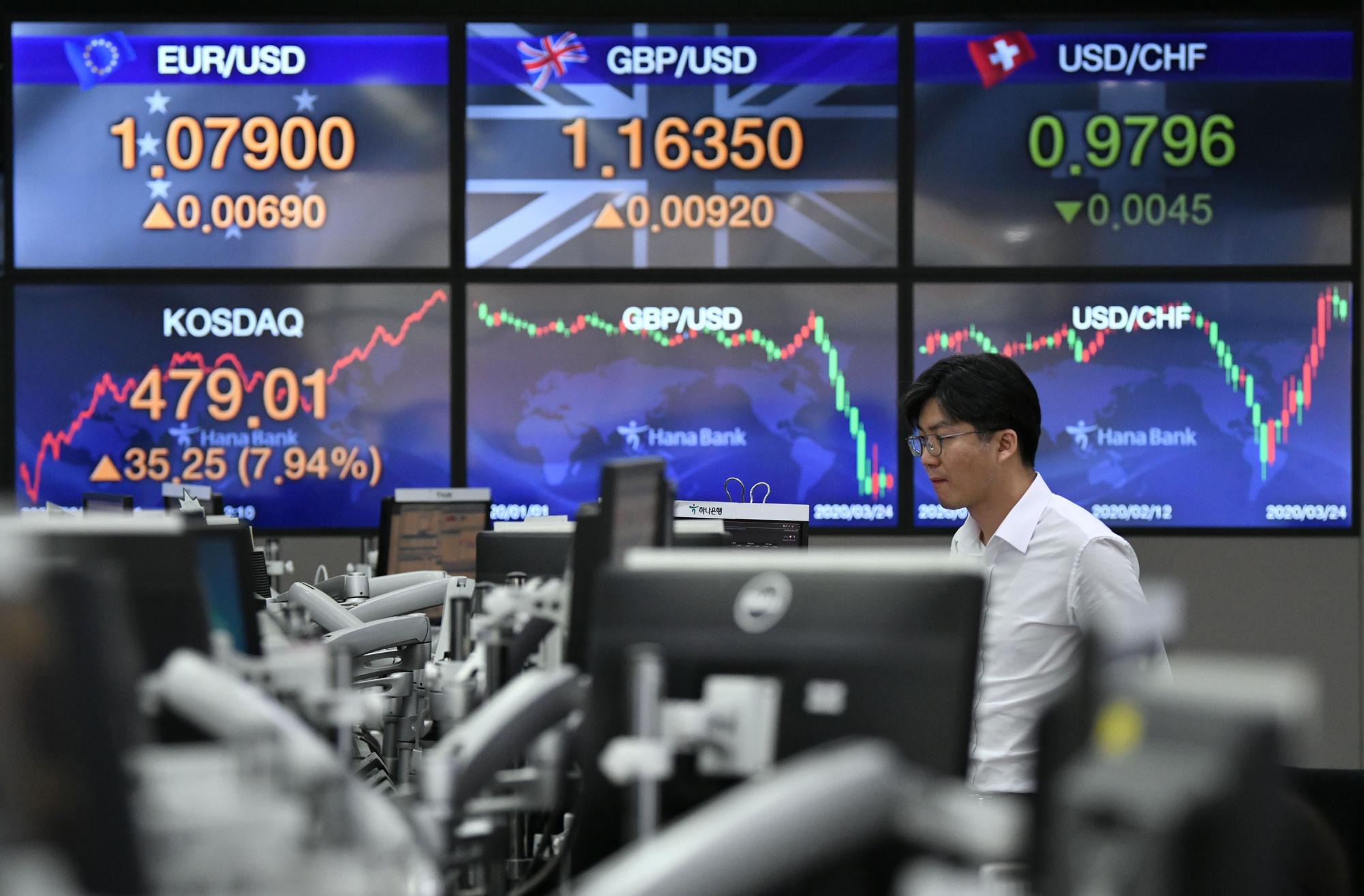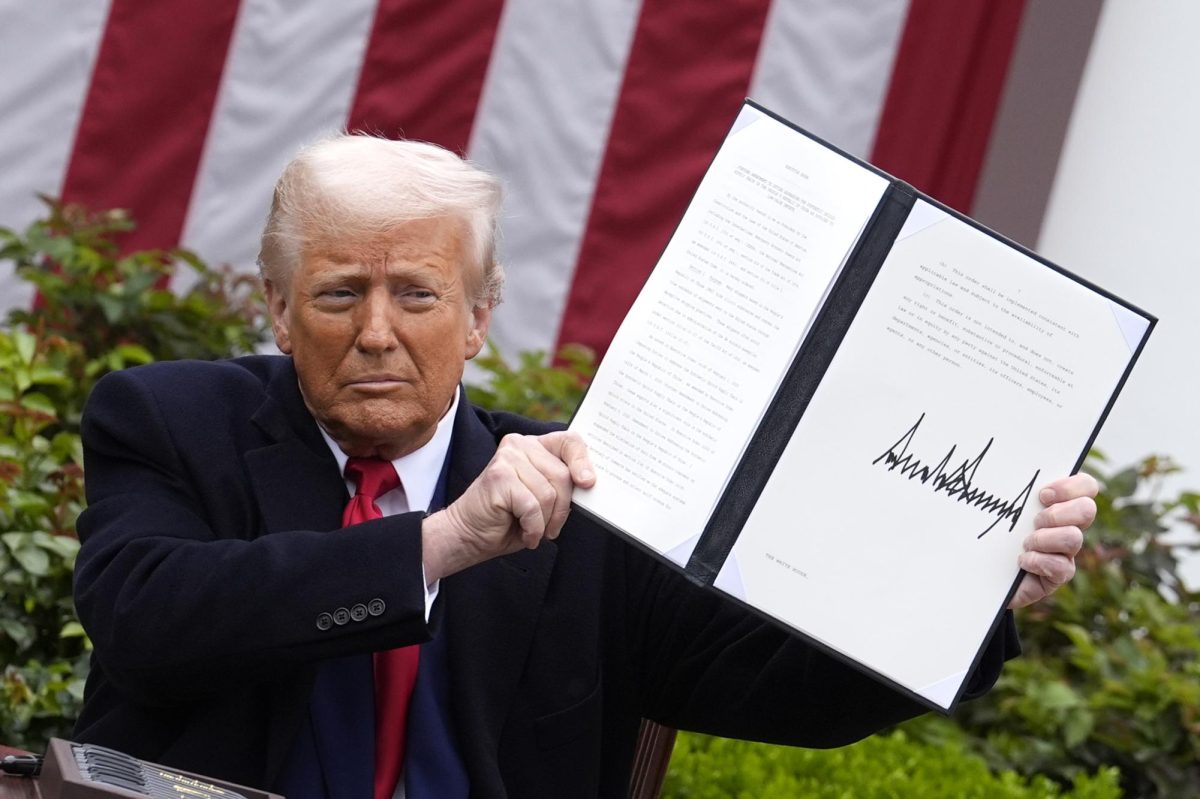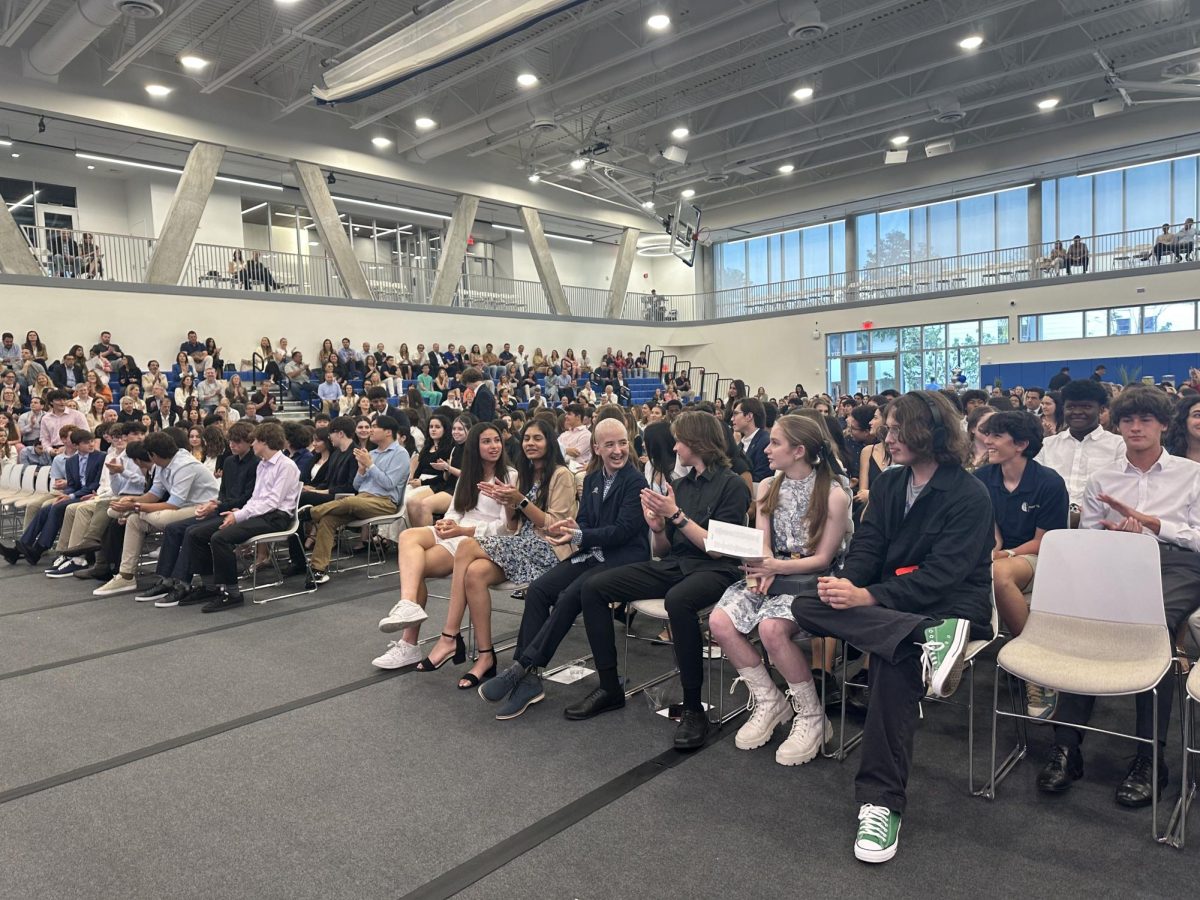For generations, America’s economic freedom has been built on the principles of open markets and fair competition—values that have driven innovation, lowered prices, and empowered consumers. However, in recent years, a different kind of economic oppression has quietly taken root: tariffs. On April 2, 2025, President Donald Trump announced a series of tariffs, collectively termed “Liberation Day,” aiming to address perceived trade imbalances and bolster domestic industries. These measures include a universal 10% tariff on all imports and higher “reciprocal tariffs” on specific countries, such as 34% on Chinese goods, 20% on European Union products, and 24% on Japanese imports.
One of the most significant problems with tariffs is how they affect the average American. Although they are meant to protect domestic industries by making imported goods more expensive, the reality is that consumers end up paying the price.
Higher tariffs on goods from other countries mean higher prices at the checkout counter. Everyday items like electronics, clothing, and even basic groceries become more expensive, squeezing the budgets of working-class families. While corporations and industries may receive some short-term protection, it is the people on Main Street who feel the impact the most.
History shows us that tariffs have repeatedly failed to deliver the economic security they promise. One glaring example is the Smoot-Hawley Tariff of 1930, enacted during the early days of the Great Depression. Aimed at shielding American farmers from foreign competition, it instead was blamed as a primary cause for worsening the effects of the depression.
Other countries retaliated with their own tariffs, stifling international trade and deepening the economic crisis. Instead of fostering economic growth, the policy backfired spectacularly, harming the very people it intended to protect. Despite this cautionary tale, modern policymakers continue to push for tariffs under the guise of patriotism and economic strength.

By April 3, only one day after President Trump put the tariffs in place, the stock market had already felt the effects, with Dow Jones going down 1,500 by noon, and S&P went down by 4%. To add on, experts from UBS believe that inflation can rise by 5% if the tariffs are not reversed soon. The worse part about it is how it affects the everyday American, since so much of what we rely on is importated into the country, the prices on said items will skyrocket forcing the citizens to pay the price of our goverment’s decision making.
The irony of promoting tariffs while calling April 2nd Liberation Day is impossible to ignore. Liberation is about breaking free from constraints and giving people the chance to thrive on their own terms. Yet, tariffs impose artificial barriers that hinder competition and limit choices. They force consumers to buy from a narrower selection of products, often at higher prices.
Rather than empowering American industries to innovate and compete on the global stage, tariffs encourage complacency in the American economy. True economic liberation would involve reducing trade barriers, allowing American businesses to thrive through innovation and quality rather than false protection.
Another overlooked consequence of tariffs is how they can damage relationships with other nations. Economic retaliation from other countries is near inevitable, as countries hit by American tariffs respond with their own measures. This tit for tat cycle can harm American exporters, especially small businesses trying to expand their markets abroad.
Demand drops when American goods become more expensive in foreign markets, and jobs tied to export industries are put at risk. At a time when global cooperation is crucial for addressing complex challenges, isolating ourselves economically does little to promote liberty or prosperity.
While tariffs may, in theory, provide temporary protection for domestic businesses, in reality, the protection is nothing more than a paper tiger.
The Trump administration is in the midst of creating a plan to help the suppliers and middlemen with economic relief. However, there is no plan for the consumer and how to help deal with rising prices and inflation. This can not only affect the Trump administration’s popularity but also the Republican Party as a whole. There is a high chance that in 2026, if things continue the way they are, Congress flips to the Democrats during the midterm elections, leading to the end of the tariffs.

The main thing with tariffs is that they are a long-term goal- decades of work. Once in due time, these tariffs will be taken down, the American economy will take a hit.
Their removal exposes industries to greater competition from foreign markets, often leading to a sharp increase in imports. This influx of cheaper goods can undermine the pricing power of domestic producers, making it harder for them to compete without significant innovation or cost-cutting measures. For consumers, the elimination of tariffs might bring lower prices on some goods.
It can also cause disruptions in supply chains and decrease the overall quality of jobs, especially in sectors that rely on tariff protection. The shift towards global competition can lead to job losses in vulnerable industries, further destabilizing the economy.
As we reflect on Liberation Day, it is crucial to remember that real freedom means more than just political independence—it means economic opportunity and the ability to make choices without unnecessary government interference. Rather than embracing tariffs that restrict trade and hurt everyday Americans, we should be advocating for policies that encourage open markets and fair competition. Supporting American workers means investing in education, innovation, and infrastructure rather than resorting to outdated protectionist measures.
In a world that is more interconnected than ever, our strength lies in our ability to adapt and compete, not in building economic walls. Liberation Day reminds us of the sacrifices made for our freedom, but it also challenges us to reflect on how we maintain that freedom today. By rejecting tariffs and embracing a more open economy, we can ensure that the principles of liberation continue to guide us—both in spirit and in practice.













![Raider YMUN competitors pose for a picture after touring Yale. "Touring an Ivy [League school] and taking group photos was a lot of fun," sophomore Valeri Bermudez said. They insulated themselves from the 29-degree Fahrenheit weather and wind chill with puffer coats, UGG boats, scarves, and gloves.](https://theraidervoice.com/wp-content/uploads/2025/01/IMG_5547.jpeg)






